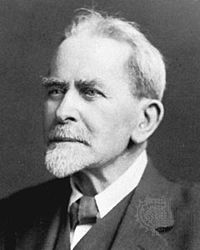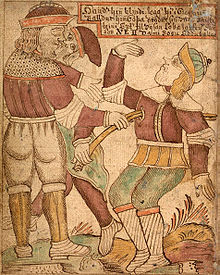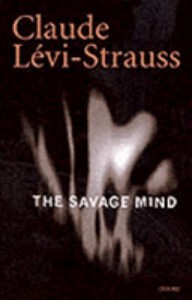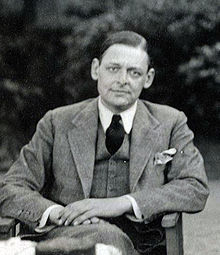Sir James George Frazer
Revisiting the Rhetoric of Criticism/The Human Sciences through Northrop Frye’s Student Essays
The following is a continuation of a previous post and the discussion of Frye’s student essays and their relevance to his later criticism.
In his essay on “The Jewish Background of the Old Testament: An Essay in Historical Apocalyptic,’ the young Northrop Frye expresses his dissatisfaction with ‘the philosophy of history’ he finds in one of the foundational texts of the twentieth century, Sir James Frazer’s The Golden Bough. Frye recoils from ‘the Macaulay-like tone of the supercilious Victorian contemplating the wasteful and gloomy pageant of history’ (NFSE 140). He writes as if his fury with the author has slowly been mounting in the course of long and comprehensive reading although, as Robert Denham points out, the initial source of his frustration is with the very explicit statement of his views that Frazer makes in the Preface and final chapter to the two volumes of Balder the Beautiful, first published in 1913.In the mid nineteen-thirties, when Frye wrote, Frazer’s confident and progressive tone must have seemed risible, after a major war and a beginning economic crisis that saw out the decade, only to be relieved by a second burst of international hostilities. In this discussion, I am less concerned with Frazer’s philosophy of history –which I shall discuss very briefly—than with the rhetoric of these two chapters. Frazer’s ‘philosophy of history’ is fairly disposable. But his rhetoric raises a hornet’s nest that illuminates not just the young Frye’s thought, but also the strains and conflicts that would afflict the study of the humanities arguably for the rest of the twentieth-century and would be important for Frye’s own reshaping of the field. In some of this discussion, then, I take a little detour from direct confrontation with Frye in order to look more closely at these pages of Frazer.
Balder’s death, 18th century Icelandic manuscript
Although the contents of Frazer’s study cast the spell over modern literature discussed in John Vickery’s The Literary Impact of the Golden Bough (1976), its intellectual authority has always been shakier. In 1959, in a CBC broadcast on Frazer that located him as one of ‘the architects of modern thought,” Frye’s sense of his limitations was fairly marked: “I would not say Frazer was a great thinker’ (91).* What he did, Frye argues, was to provide a ‘a kind of grammar of the human imagination’ (89). When professional anthropologists, fresh from a reading of La Pensee Sauvage, revisited Frazer, their verdicts were much more severe. Edmund Leach dismissed Frazer as a recovering Calvinist, unaware of his infirmities, while Mary Douglas thought that Frazer bolstered the myth of the other, the primitive society shaped in in every way the opposite of our complacent, comfortable middle class world. Familiar with his primitives only through the protected sanctum of the library, Frazer bestowed on an emerging field of study an opposition that threatened to cripple it as one of ‘the human sciences ‘. For Frazer effectively divided the world into two—the primitive into the civilized, even as he purported to be writing about humanity.
This overconfidence, Douglas judged, meant that Frazer ignored the need shared by so-called primitive societies and their modern successors to find order in the patterns of their lives and the diverse, but equally legitimate, strategies both devised for conferring that order. Who were we, she asked, to see primitive styles of thinking and behavior as retarded variants of our own? Who were we to think that we could read the minds of people whose fortunes we knew only from mediated reports of their collective behavior made by temporary visitors?
All these reservations and many more have been sounded many times since the nineteen-sixties, when Leach and Douglas were in the process of reimagining anthropology for British readers. They need to be kept in mind when we return to Frazer’s Preface and conclusion, although there is plenty to keep us occupied in these chapters themselves. Frazer’s belief that the value of his book relies in the facts it collects rests on his own article of faith that ‘While theories are transitory, a record of facts has a permanent value’ (xi). He offers his volumes as ‘a chronicle of customs and beliefs that may retain its utility when my theories are as obsolete as the customs and beliefs themselves may be” (xi). With his appeal to utility and his readiness to sink the value of his book in the support of the facts, it is evident that Frazer projects himself for his readers as a kind of Gradgrind. One important aspect of this self-presentation is to promote himself as a member of a progressive, modernizing culture committed to the supersession of the extravagancies of ancient prejudice through the weight of the facts it quarries from all sources. As a young idealistic type of thinker, Frye might have found some of this attractive. But, as we shall see, there was much to dispute in this for an early twentieth-century Canadian.
There seems to be no foundation for Douglas’s charge that Frazer saw an impassible gulf between savage and civilzed mentality, at least on the evidence of these two chapters. Rather, Frazer held to a completely different set of doubtful generalizations about the path from savagery to civilization, as the comments below clearly disclose:
The truth seems to be that to this day the peasant remains a pagan and savage at heart; his civilization is merely a veneer which the hard knocks of life soon abrade, exposing the solid core of paganism and savagery below. The danger created by a bottomless layer of ignorance and superstition is lessened, not only by the progressive decrease of the rural as compared with the urban population in modern states; for I believe it will be found that the artisans who congregate in towns are far less retentive of primitive modes of thought than their rustic brethren. In every age cities have been the centers and as it were the lighthouses from which ideas radiate into the surrounding darkness (and below ix).
At this point the progressive, Macaulayean Frazer shifts into a gear more appropriate to Frazer the last torch bearer of the Scottish enlightenment, proud of the rationalizing energies of city life and shuddering at the memories of rural credulousness and closed-mindedness. In no way is the savage a relic of the past; every rural enclave, as figures as different from Thomas Hardy, Robert Louis Stevenson, and Karl Marx have seen and dramatized, serves as the cradle for irrational mysteries.
If we can step back and entertain the fantasy that we are Northrop Frye for a second, we can imagine that the student of Emmanuel must have had some reservations about such comments at this time. As a student of religion in the precincts of a city whose rationale as a social form was reason, was Frye condemned to obsolescence? Was he not also acquainted with a very different paradigm for city life available through Spengler, who saw the collective life of reason and engineering fostered in the city as harboring its own flaws and looked uneasily to its eventual extinction? Would Frye be content to ratify the brutal division between city and country to which Frazer’s urbanity consigned modern culture? And could anything genuinely enlightening for the direction of humanity arrive through the collection of ever denser swarms of facts?
These are some of the questions that reading these pages in Frazer might have set in train for Frye. We are on more certain ground if we move from the Preface to Balder the Beautiful to its closing chapter. At least one strand of Frazer’s discussion confirms his identity as heir of the Scottish enlightenment and the stadial view of history—itself originating in the Scottish Enlightenment—analyzed in Ronald Meek’s Social Science and the Ignoble Savage. In the three-phase model Frazer offers of human thought, magic gives way to science as a means of satisfying the human instinct for order. This he offers as universally true, like Jane Austen’s verity about the necessity of a single man in possession of good fortune to find a wife. Its universality argues for, as Frazer insists, ‘the sameness of man’s chief needs.’ That sameness means men everywhere at the religious phase of human development put their trust in ‘the caprice of spiritual beings, like man in kind, though vastly superior to him in power’ (305). The hope is that these Titans will tide them over across misfortunes—a bad harvest, an outbreak of pestilence, an earthquake. Where human confidence sustained the reign of magic through the verification of a series of limited experiences that attest to ‘certain established order of nature on which he can surely count’ (304) and can manipulate to his advantage, natural disaster and everyday misfortune call for ‘certain great invisible beings behind the veil of nature’ (304) to step in and offer succor. In the religious frame of reference, nature appears ‘variable and irregular’ (305). Magicians see order everywhere in their own limited horizons—for Frazer, a horizon that ends with the precincts of the village.
To that degree magic is closer to science than religion since science differs from magic only in its patience and accuracy based on ‘closer observation’ (305). After magic and science step in, ‘rigid uniformity…punctual precision’ set in as the operations of nature regularize. Science also promises ‘The fuller knowledge [that] would reduce the seeming chaos to cosmos’ that Frazer hopes will be yielded by a careful, endless accumulation of ‘the facts.’ Here Frazer affirms, not without relief, that: ‘It is probably not too much to say that the hope of progress—moral and intellectual as well as material—in the future is bound up with the fortunes of science, and that every obstacle placed in the way of scientific discovery is a wrong to humanity’ (306). Who is foolish enough to set himself up as an enemy to humanity? To disagree with Frazer is not just to disagree with progress, but to apply to join Timon in his cave or Gulliver in his stable.
Even so, students of literature will recollect that it is just this emphasis on the future of humanity—Frazer at his most eclairé—that was to irk the founder figures of their discipline. For T. S. Eliot, talk of the future always made him nervous and his nervousness increased as the century moved forwards. The editorial pages of The Criterion are full of Eliot’s indignant protests about seeing the work of generations discarded for some undefined project to be realized in the future, when of course the real task was to join him and his contributors in buckling down to secure public assent to the order of the past. The Southern Agrarians, Tate and Ransom, thought that talk of the future meant and en to Southern difference and incorporation in Yankee business. They expressed these reservations more indirectly and cunningly, however, saying that a philosophy of history driven by science had no room for the fear of the universe and respect for contingency that permitted the construction of great art and traditional faith.
For Frye, the ‘faith in order as the underlying principle in all things’ could not, for a student of William Blake, rest in the punctual, regular, supremely unmeaningful order whose authority Frazer proclaimed. As a youthful idealist, a self-styled Chritian apologist, he wanted an order that would connect religion—and literature, I think—to human visions of the good life (111), to do justice to human self-awareness rather than ignoble fear, to ‘the most complete life’ not the lowest common multiple of human experience. In this, Frye’s objections to Frazer and the ascendancy of science, were much more humane than Eliot or any of the ancestral presences who attended at ‘the rise of English studies.’
If this were all Frazer had to say, then there would still be plenty to dispute, as we can see. But having pinned his colours to the mast of science, he then takes an unpredictable step back that complicates the map of early twentieth-century intellectual history still further. He observes that “We must remember that at bottom the generalizations of science or, in common parlance, the laws of nature, are merely hypotheses devised to explain the ever-shifting phantasmagoria of thought which we dignify with the high-sounding names of the world and the universe.’ He anticipates stoically the arrival of ‘some totally different way of looking at the phenomena—the shadows on the screen’ (306). Having apotheosized a positivist, fact-driven science in one paragraph, he dethrones it in another. He takes one of those detours into skepticism that are so familiar to students of the twentieth century history of ideas from the pages of Carl Becker, Wallace Stevens, or George Santayana and that would return all over again in our later culture wars.
Like all these writers, Frazer’s discussion becomes more literary as his skepticism deepens. He marshals the Thackeray of Vanity Fair, Dante’s Ulysses and Shakespeare’s Prospero, and even, arguably, some rhetorical pages from the Marx of Communist Manifesto, to underwrite his vision of shadows on the wall invested with meaning by the sheer force of human need. The prospect of a rapidly cooling planet—how odd this appears in 2012!—invalidates his diagram of human progress and takes his readers into a colorful Pyrrhonism of dancing shades and specters. In the very last paragraph, he returns to Nemi, and, Gibbon- like, presides over an eclectic weaving of Christianity and paganism. Frazer now hears the Bells of the Angelus even as he watches over a site that once harbored the temple for the sacrificial rites associated with the King of the Wood. Religion and literature add colour to the greyness science and fact settle over all things.
For Edward Leach, passages like these were Frazer at its most worthless. We might conjecture that they were very different for Frye and that they helped to station him at the crossroads of early twentieth century thought. One road led to science, and a rule-bound regularity that starved his imagination. One road led to religion and its awe-inspiring, obsolescent deities and long-silenced festivals. Literature itself, by implication, provided the language for a skepticism and uncertainty that Frazer was surely not unique in discerning at the start of the twentieth century. We might even speculate that whenever ‘the architects of modern thought’ began to feel their enterprise was a futile one, they became distinctly literary.
Let me recapitulate. A reading of Frazer would have exposed Frye to the challenge of a fact-driven version of science that, in the name of humanity, consigned well over half humanity to wander in mazy error. But it would also acquaint him with a corrosive skepticism that made all intellectual activity a kind of metaphysical shadow-boxing, an endless preparation for a contest that never took place. Furthermore, although Frazer operated in the guise of propping up the myth of progress and continuity, he offered what would become a familiar modern narrative of perpetual displacement whereby certain styles of thinking and ordering experience became simply marginal to the main traffic of civilized thinking. Even as an undergraduate, Frye recognized that this was ‘narrative’ not fact, and that the task was to understand what Frazer’s typical three-volume novel about human thought told us about the quest for order and the schema employed in making that quest. In time, Frye would respond to this malaise by building the great superhighway of his mature writing, in books that would see religion, literature, mythology, and science all subserving ‘the great code’ of human experience. But this is another story, to be debated, I hope, with educated imaginations in future communications.
*Notice that Frye’s CBC broadcast draws on materials from the undergraduate essays he had written twenty-odd years before. This is a tribute not just to Frye’s intellect, but to record-keeping skills I can only envy!




